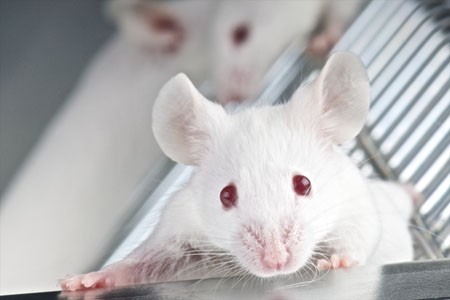In Mice, Ketamine Prevents Stress From Turning Into Depression
Stress increases the risk of psychiatric illnesses such as major depression and post-traumatic stress disorder. Not everyone who experiences stress goes on to develop these illnesses, though. Researchers are currently trying to find out why, exploring treatments that might increase resilience and prevent mental illnesses.
Animal research is often used to study depression. Mice exposed to certain stressors behave in ways that resemble human depression—like giving up faster when they’re forced to tread water, or withdrawing from activities they once enjoyed, like eating sucrose. In a recent study by researcher Christine Denny and colleagues, mice were injected with either saline or ketamine, a rapid-acting antidepressant, and one week later they were exposed to triggers that typically produce a depressive response. Mice who received the saline injection still got depressed when, for example, they were repeatedly forced to confront a dominant mouse. But mice who received ketamine injections did better, maintaining their motivation and not showing signs of depressive behavior following the stress. The researchers concluded that ketamine may have a protective effect against stress.
Editor’s Note: These results are remarkable because ketamine’s effects are typically short-lived.


